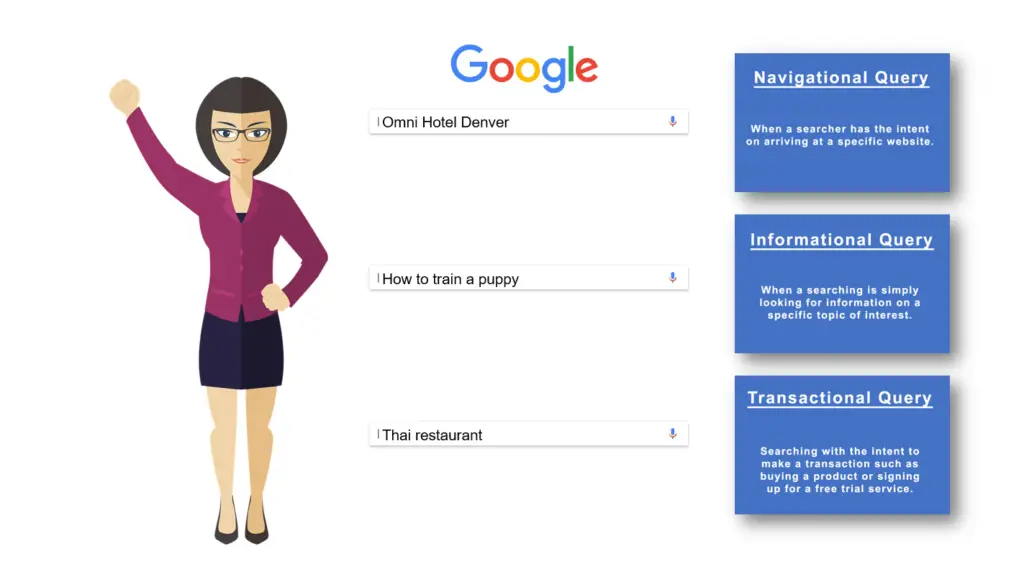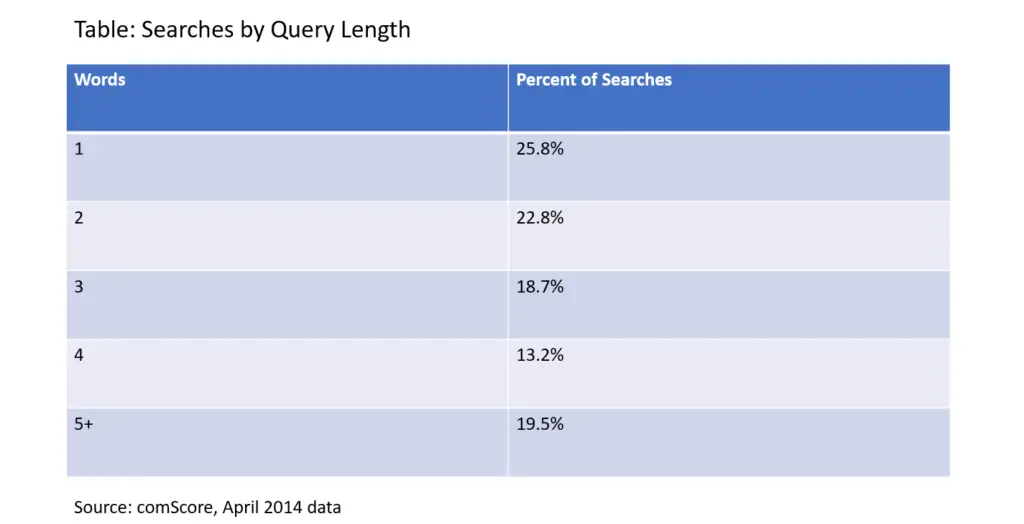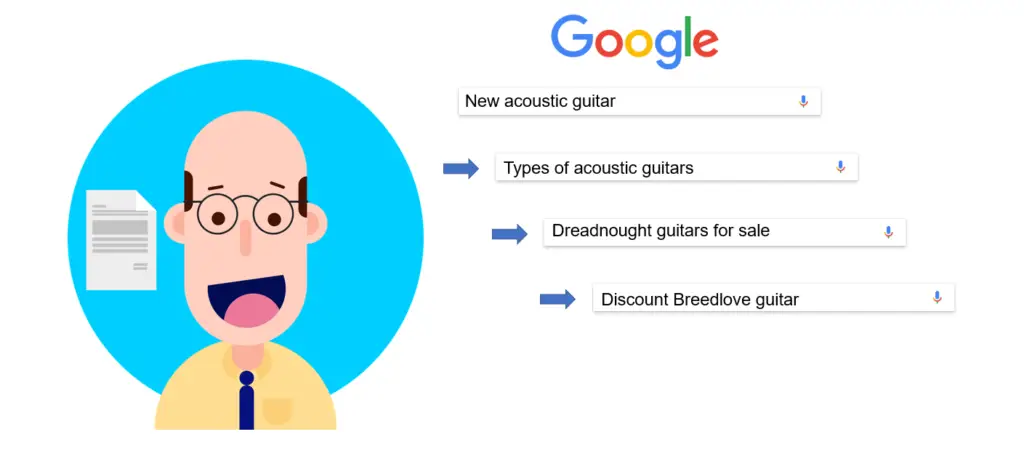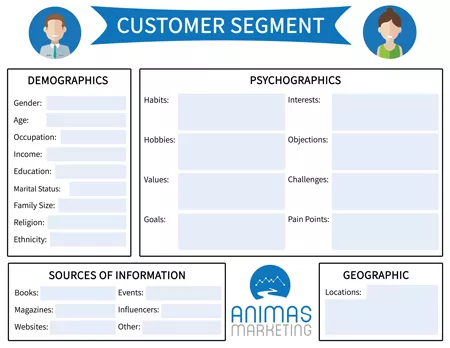Searcher Intent – Search Engine Keywords & Phrases
There are Three Basic Queries Made by Search Engine Users
The basic goal of a human using a search engine is to find relevant information with a specific set of keywords or phrases.
These phrases are then entered as a search query into a search engine such as Google or Bing.
Some people search in the form of a question but most searchers use simple phrases and word combinations. This leaves the search engine to figure out the intent of the searcher.
Understand Your Audience
When creating an SEO strategy, it is crucial to understand not only your target audience but to understand the psychology behind their search queries.
Therefore, it is important to know how they use keywords and phrases to formulate their thoughts.
An effective SEO strategist will know how their target audience uses the search functions to find their business.
As a result, a strategist will apply multiple techniques to cover the keywords and phrases they use.
There are three types of queries used when it comes to searcher intent:
- Navigational queries
- Transactional queries
- Informational queries
Navigational Queries
Navigational queries are when a searcher has the intent on arriving at a specific website.
This could be due to the fact that the user does not know the exact URL of the website, or just finds it easier to type it directly into the search engine.
Therefore, the average traffic value of these searches is high since they lead to the great conversion rates.
Although, many of the searchers are already aware of the brand and a large percentage of these users do not represent new customers for a business.
Consequently, these queries offer an opportunity for another brand to steal customers away from the brand being searched for but the conversion rates of these opportunities are low.
Informational Queries
Informational Queries include the largest range of searches made with over 80% of all searches.
These searches are mainly non-transactional but can include the research a user makes when deciding on a transaction.
Of course, the searches could be anything from searching the weather, first-aid treatment, researching a historical moment, training a puppy, and much more.
The possibilities are really endless when it comes to informational queries and can include just about anything on a user’s mind.
While the searcher may not be ready to make a purchase on an informational query, the value of having the users sent to your website for valuable information can lead to conversions at a later date.
Therefore, having your brand show up with the information they are looking for provides great value when they are ready to make the final purchase.
Transactional Queries
Transactional Queries not only include a user ready to make a payment for a product or service, but they include transactions such as signing up for a free trial on Netflix, creating an Instagram account, or finding the best local Greek restaurant.
Ultimately, while these transactions make up a small portion of all searches, the value of them are extremely high since they lead to a final sale.
Searches by Query Length
When any search is being made, it is important to understand how the user is using phrases and how many keywords they use when searching for a particular business.
The graph listed below shows a number of words used on average for any given search query.
Also, this graph shows us that most of the searches are made with the least amount of words possible, meaning as SEO strategists, we need to make sure that the right pages show up with the least amount of effort made by a user.
Average Search Made by a User
Now, think about how the average user searches on a certain decision such as buying a new guitar.
The user could start by searching the phrase, “new acoustic guitar” to find that there are endless options and styles to choose from.
The user could then search for, “types of acoustic guitars” to find out which styles they have to choose from and which one they like the best. Then, the user then decides to search for, “Dreadnought guitars for sale”.
After seeing the different brands, the user decides that they want a Breedlove guitar and searches, “Discount Breedlove Guitar” to find a more narrow list of guitars to choose from among various sites.
So, within an hours time, this user went through 4 different searches to finally arrive at the destination they were looking for from the beginning.
This kind of searcher behavior is common and needs to be taken into account when trying to optimize a website for specific keywords.
Remember, knowing your target audience and how they search is a basic necessity when working on search engine optimization efforts.
Learn how to effectively target your target audiences with our free detailed customer segment worksheet below.
Download the Customer Segment Worksheet
Is Your Business Being Found Online?
Free Digital Marketing Report ($150 Value)
Want to know how your business stacks up against the competition?
Need Marketing Help?
If you want assistance with marketing strategies to grow your business, then let’s talk.







0 Comments